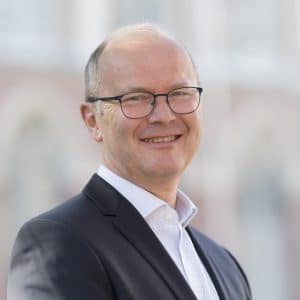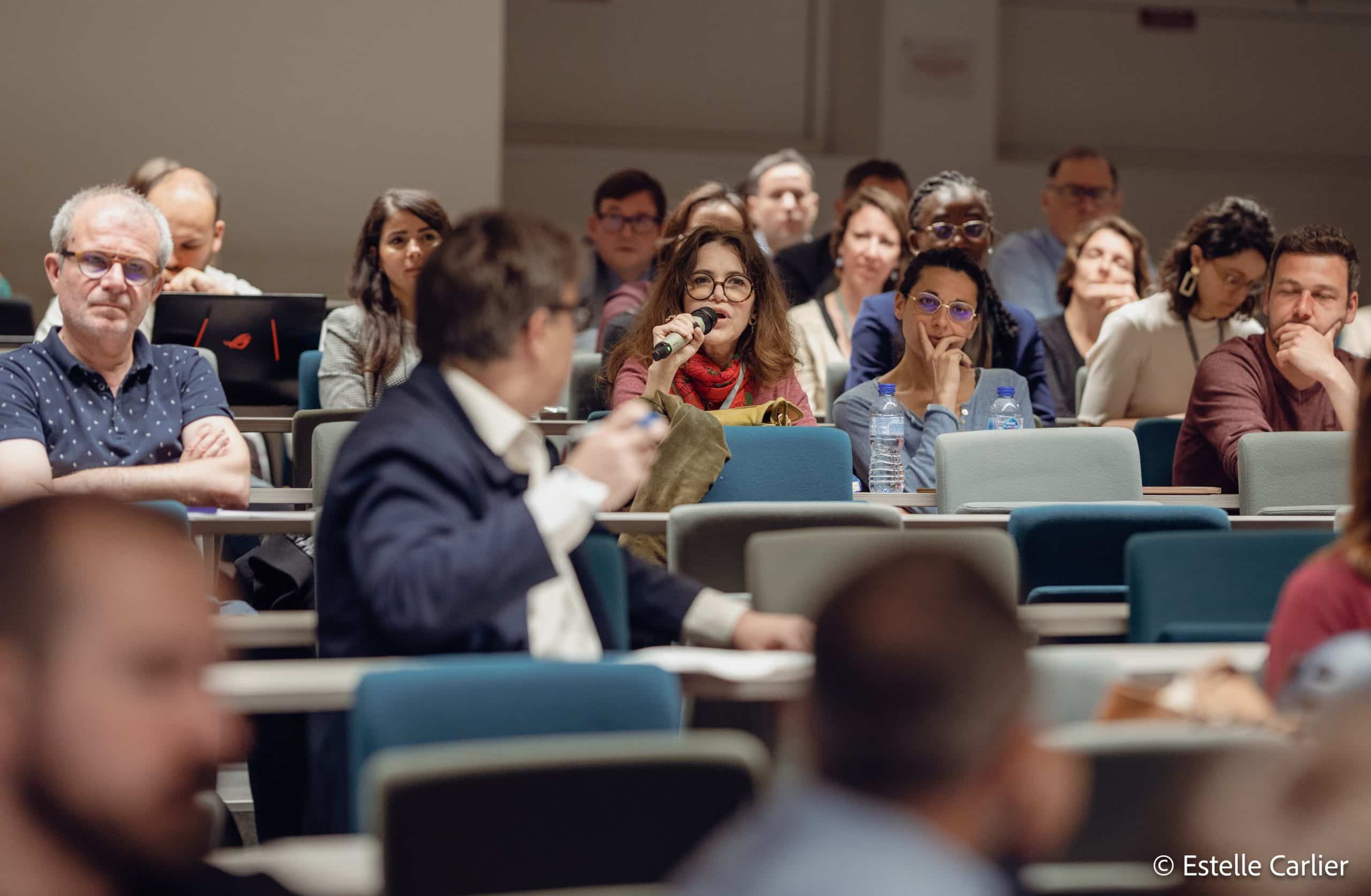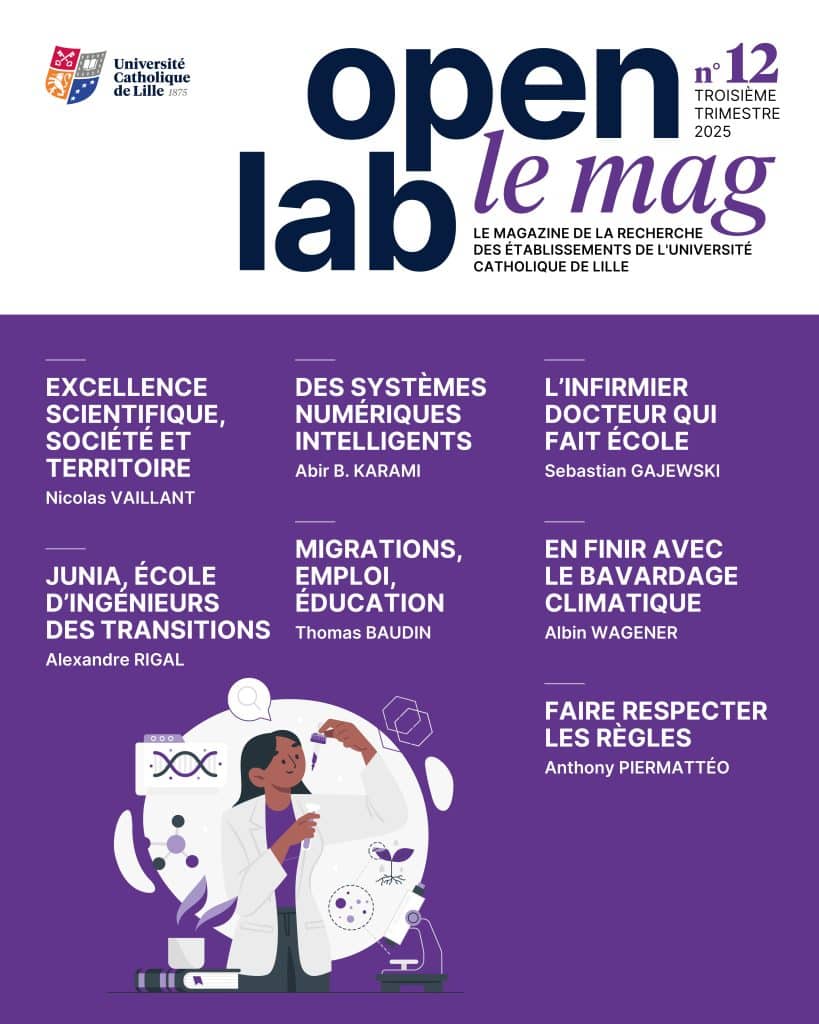Strategic Vision

In 2025, the Université Catholique de Lille celebrates its 150 years
… « A century and a half of emergence and evolution of disciplinary and multidisciplinary, academic and professional training programmes, created in response to multiple social, political, economic and environmental changes; a century and a half of supporting numerous generations of students; a century and a half of remarkable regional, national and international development in the service of quality student accommodation, with more than 40,000 students today (UCLille); a century and a half of service to society, enabling us, in particular, to treat and care for our patients in our hospitals and those in our nursing homes.
In terms of research, our university group has successfully adapted to international academic requirements and leveraged its agility to achieve scientific excellence.
With regard specifically to the Catholic Institute of Lille (ICL), significant milestones have been reached in recent years. The research programmes developed have gained momentum.
Fruitful partnerships with regional and international universities have been consolidated. Resources dedicated to research have been clarified and increased.
These developments, combined with our desire to support the growth of increasingly high-quality research, provide us with the resources and momentum we need to fulfil our academic missions of education, research and service to society at the highest level and on a sustainable basis. »
Catholic University of Lille – 1875: Research, Education, Service to Society :
A Strong Threefold Mission
Education, service to society (including healthcare), and a commitment to research excellence lie at the heart of the university’s mission.
Integrated Research
Closely connected to teaching and fieldwork, research enhances scientific discovery and enriches student learning.
A Dynamic Scientific Community
850 faculty researchers and more than 200 PhD candidates contribute to 12 research units covering over 60 disciplines, either independently or in partnership (notably with the CNRS).
Strategic Research Areas
Vulnerabilities
Ethics and Integral Ecology
Risks and Geopolitics
Contemporary Transformations (including digital transitions)
National and International Outreach
The university extends its influence beyond the regional level, driven by an ambitious policy that supports research and nurtures talent.
A Commitment to the Future
To understand, educate, and take action — in order to support major contemporary transitions and contribute to a better world.

Analysing and understanding in order to educate and take action at the heart of contemporary transitions
The Research Fields within UCLille Institutions
The research areas covered by UCLille’s institutions are defined within their individual strategies. Some of these benefit from strong visibility and a solid reputation in specific sectors, particularly those driven by their research units.
At the federation level, four overarching strategic and cross-disciplinary research areas have been identified:
Ethics and Integral Ecology
Digital Transitions, particularly those driven by the rise of Artificial Intelligence
Contemporary Risks and Geopolitics
Contemporary Fragilities and Vulnerabilities
While these broad themes may not be explicitly reflected within every entity of UCLille, they bring together numerous strategic and collaborative projects.
In figures ...
850 faculty researchers and clinical academic researchers
220 PhD candidates
12 research units and institutes (including 2 in partnership with the CNRS)
15 established research chairs
17 platforms and resources dedicated to research
1 Office for Clinical Research and Innovation
1 Statutory Research Committee (CR-UCL)
1 annual Thesis Award recognizing 3 laureates

For 15 years, the ICL has been undertaking profound changes in the organisation of its research...
Significant human, material, and financial resources have been mobilized, contributing greatly to the substantial development of the institution’s research activities. This effort has ensured compliance with national and international standards, the integration of five research units into the École Doctorale Polytechnique Hauts-de-France (ED PHF), and the recognition of the ETHICS Laboratory (EA 7446) as an officially accredited Research Team (“Équipe d’Accueil”).
These positive developments, strengthened by ICL’s interdisciplinary culture, pave the way for the continued, steady, and meaningful growth of its research activities in the coming years.
Four strategic priorities have been defined to support this progress:
Adapt the overall organization of research and enhance the visibility of its outputs and activities.
Expand and accelerate the internationalization of research.
Build a pool of expertise valuable to businesses, local authorities, and institutions engaged in contemporary transitions, while reinforcing academic activities.
Implement the qualitative doctoral policy that has been developed.
ICL will rely on several strong and proven principles:
the decentralization of its research, combined with networking and cooperation among its research units;
the promotion of disciplinary hybridization, without compromising the quality of disciplinary production;
the anchoring of research activities in real-world issues and contemporary societal challenges;
the incubation of teams, Chairs, and emerging projects within a framework that encourages experimentation and embraces the right to trial and error;
and the close interconnection between teaching and research.
How the research works
Animation
Transversal coordination is led by the Vice-President for Research of the federation. The aim is to facilitate connections between the research departments and research units within UCLille, to represent and promote the research conducted across its institutions, and to identify and secure resources to support these activities.
The Vice-President for Research also chairs the Statutory Research Committee, which notably organizes a recurring scientific event — OPEN LAB: Research Day — publishes a quarterly journal of the same name, and oversees the annual Thesis Award.
Organisation
At the scale of the entire university, the organization of research is based on a balanced structure: on one hand, there are established strategic alliances with research units and institutions outside the scope of UCLille; on the other hand, several institutions host their own research units, whether disciplinary or multidisciplinary.
In total, research is organized around 12 formal research units, including 5 jointly supervised (co-accredited) units. Among these, two are CNRS Joint Research Units (UMR):
the LEM (Laboratoire d’Économie et de Management – Economics and Management), jointly supervised with IÉSEG, and
the IEMN (Institut d’Électronique, de Microélectronique et de Nanotechnologie – Electronics and Nanotechnology), jointly supervised with JUNIA.
JUNIA also jointly supervises an INRAE Joint Research Unit (UMR), BioEcoAgro (Agriculture, Biotechnology, Agri-food and Environment), as well as the LGCgE (Civil and Geo-Environmental Engineering Laboratory) and the L2EP (Electrical Engineering and Power Electronics Laboratory).
Evolution
Over the long term — that is, across the history of the Catholic University of Lille, founded in 1875 — several “pockets of scientific excellence” have emerged, particularly in fields such as geology, nanosciences, finance, and the history of medicine. UCLille was a founding member of both the IEMN and the research unit that later became the LEM.
This local excellence must be viewed within the context of a constrained economic model: the higher education and research institutions within UCLille are neither public nor for-profit private entities. They hold the status of EESPIG (Private Higher Education Institution Serving the Public Interest), meaning they are nonprofit organizations with a public service mission. Their budgets rely heavily on student tuition fees, which limits their ability to fund fundamental research through internal resources.
As a result, the institutions within the federation have chosen a strategy of agile research excellence, rather than pursuing exhaustive excellence across all fields.
In this context, faculty researchers are encouraged to engage in project-based research, particularly through European funding calls, and to develop collaborative research partnerships with stakeholders from the field. It is also worth noting that several major, structuring research projects have been launched with the support of the Hauts-de-France Region, notably through financial contributions.
Partnerships
The Catholic University of Lille is a founding member of both the MESHS (Maison Européenne des Sciences de l’Homme et de la Société) and the Presses Universitaires du Septentrion.
Several formal research partnerships have been established with universities across the Hauts-de-France region, including:
through the jointly supervised research units co-accredited with UCLille institutions;
with the Université Polytechnique Hauts-de-France (UPHF), under a project-based alliance agreement (see above);
within the GIS “Institut d’Étude des Faits Religieux”, in partnership with the Université d’Artois, the Université de Lille, the UPHF, and the Université de Picardie – Jules Verne;
within the GIS Octave (Philippe Bonditti – ESPOL Lab);
through the partnership between GH-ICL and the UMR LAMIH (Human Movement Laboratory).
The MEL (European Metropolis of Lille) and the Hauts-de-France Region are key strategic partners for UCLille’s institutions.
The Clinical Research and Innovation Department (DRCI) of GH-ICL is an active member of both GIRCI Nord-Ouest and G2RC.
In 2016, ICAM – Lille site established an industrial research chair, the Chaire Sens et Travail (“Meaning and Work Chair”).
Its mission: to use research to improve management practices within companies and to prepare engineering students for their professional roles.
Its objectives are to:
Advance knowledge about work through research;
Promote results and effective ways of disseminating them;
Bring together executives, managers, and students who share the desire to improve management through work.
Industrial partners: Pochet du Courval and Noria Foundation.
Promoting the scientific community - Our journals
OPEN LAB - le mag
Every quarter, discover the work and profiles of researchers in OPEN LAB – le mag, the research magazine of the Catholic University of Lille.
Dernier numéro en ligne ici
Côté Labs - la news
Every two months, find out the latest news from our laboratories in Côté Labs, the research newsletter from the Catholic Institute of Lille.




